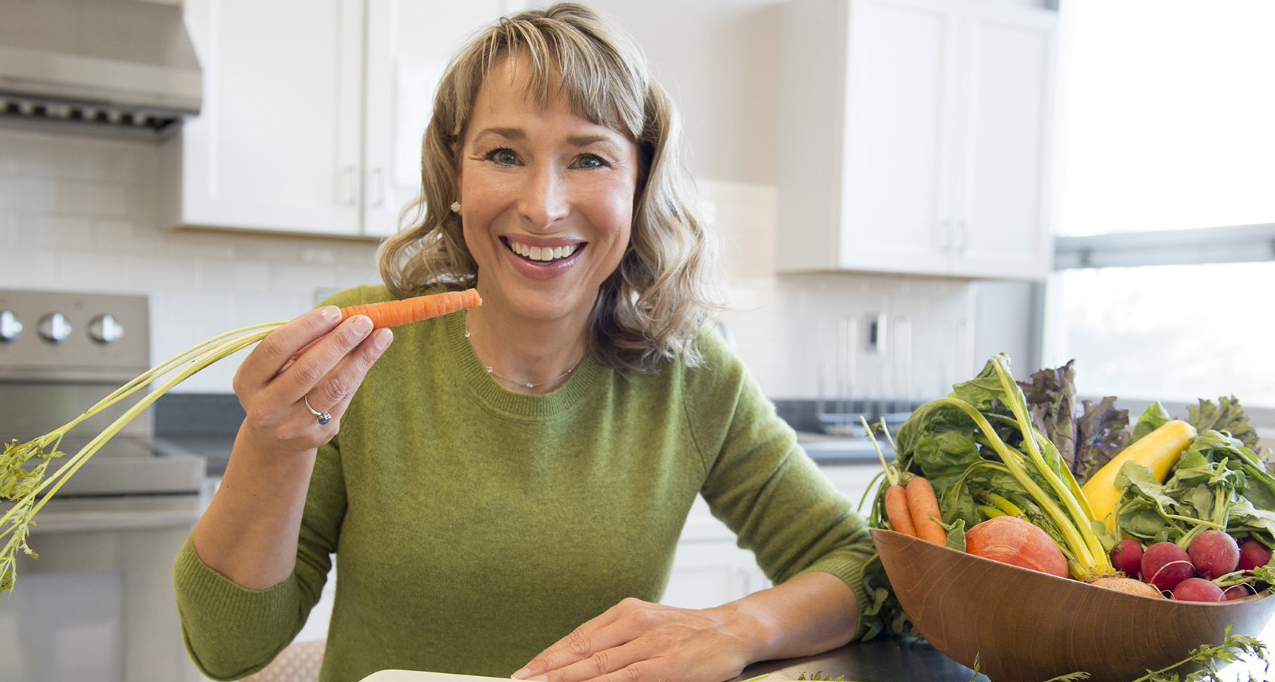
December 15, 2020
SIU nutrition and diet expert shares tips for healthy eating, even during a pandemic
CARBONDALE, Ill. — One of the most popular New Year’s resolutions is to lose weight. Compounded by the COVID-19 pandemic, social distancing and other stresses of 2020, people are dealing with a lot, resulting in a common complaint of packing on a few extra pounds. Dawn Null, a Southern Illinois University Carbondale assistant professor of human nutrition and dietetics and registered dietitian, said there are a number of easy techniques we can use to stay healthy – or get healthy.
“Good nutrition supports our immune systems so that we are better able to prevent, fight and recover from illnesses and infections,” Null said. ”And, luckily, nutritious foods are readily at the grocery stores.”
Insider tips for eating healthy
Null offers 10 strategies to help you eat healthier:
- Plan ahead. Make plans for nourishing meals and snacks that include fruits and vegetables, lean protein sources, whole grains and fat-free or low-fat dairy products. Lean protein sources include chicken, turkey, legumes (beans, peas and lentils), nuts, fish and eggs. While you’re at the store, load up on fresh fruits and veggies. They’re great for a quick snack and are filled with vitamins, minerals and fiber to help maintain a healthy gut and prevent constipation. “The pandemic is bad enough,” Null said. “Who needs constipation on top of that?”
- Red flag some foods and drinks. Avoid foods high in sodium, processed meats, sugar-sweetened beverages and unprocessed red meat. The risk of death from heart disease, stroke and Type 2 diabetes is much higher for those who consume too much of these foods.
- Stay hydrated – with water. Dehydration can have nasty side effects, including headaches, fatigue, dry mouth, dizziness or confusion. Keep a water bottle with you and sip throughout the day. If plain water doesn’t interest you, add sliced fruit or a squirt of lemon juice. Aim for at least eight 8-ounce glasses daily or more if you exercise.
- Indulge and enjoy, but don’t go overboard. What foods are your biggest temptation? Whether it’s sweet treats, salty chips or tacos, research shows it’s better to eat a little bit of what you are craving than to deprive yourself. Depriving yourself may result in eating the entire bag of potato chips rather than a single serving size. Overindulging on processed foods high in simple carbohydrates and fat can lead to feeling sluggish and increased anxiety. Sometimes it’s helpful to just buy individual serving-sized items or at least repackage food into appropriate, individual serving sizes when you get it home from the store to help you stay on track.
- Keep it in the kitchen. It’s easy when you’re working from home or watching television to walk through the kitchen and grab a snack along the way. Plan to eat all of your meals and snacks in the kitchen to avoid distracted eating – and actually enjoy what you are eating. Distracted eating often leads to unintentional overeating.
- Use smaller plates and bowls (or ramekins). It’s all about portion size. Using smaller plates and bowls automatically limits how much food you can put on or in. It also gives your brain the impression that the serving size is larger because it fills the serving dish. “Just ask my kids,” Null said. “They think a small coffee cup is an ice cream bowl.”
- Support your local restaurants. Sure, most restaurants serve large portions, and the foods are typically much higher in calories, fat and sodium than the home-cooked versions. But just eat half now and save the rest for another meal or let someone else enjoy it.
- Set a schedule. Obviously, you have to be flexible, but try to establish a schedule for meals and snacks so you don’t let yourself get too hungry. That state of hunger makes it too easy to overeat.
- Eat mindfully. All this means is truly paying attention to what you are consuming. Start with small portions. Savor what you are eating. Eat slowly and recognize when you are satisfied. Remember, it can take up to 20 minutes to feel full once you start eating.
- Get moving! A healthy diet along with regular exercise boosts your mood and makes you feel more energetic.
“When all else fails – mask up. When you’re wearing your pandemic mask, you’re not eating,” Null said with a laugh, noting that a sense of humor is important to overall health and happiness.
